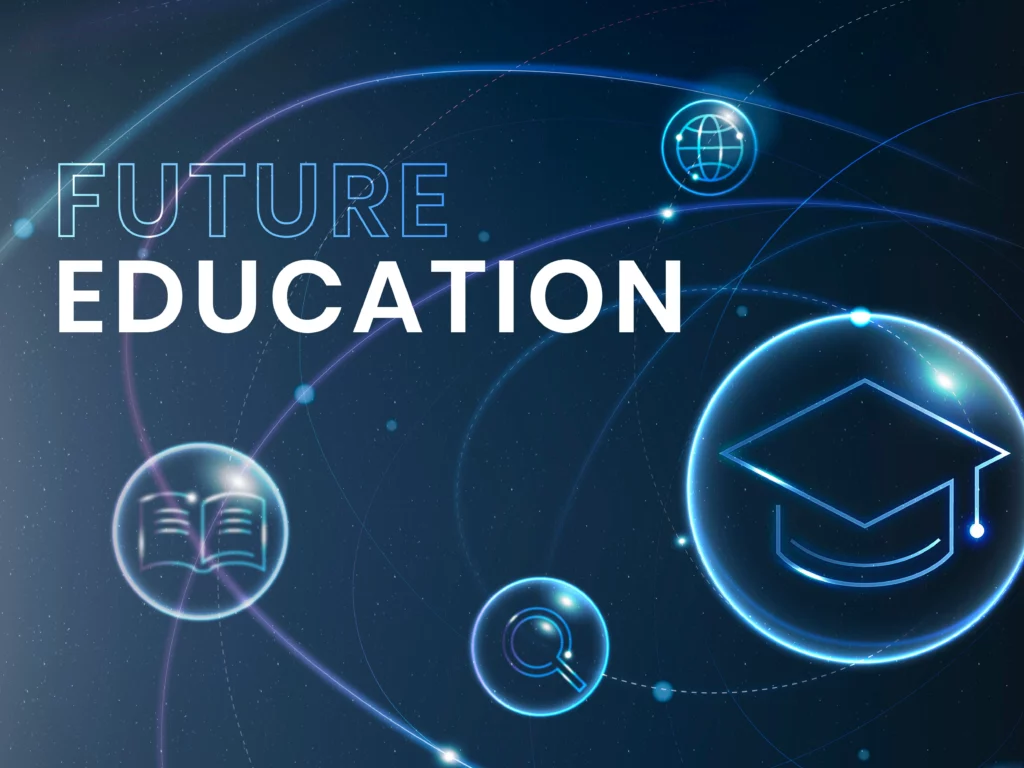AI in Education: Personalizing Learning Experiences
Artificial intelligence (AI) is fundamentally changing the terrain of education as the digital revolution unfolds. Modern AI technologies are helping educational systems all around to tailor learning experiences in hitherto unheard-of degrees. AI is stretching the boundaries of educational possibilities from intelligent tutoring systems that offer customized educational aid to adaptable learning platforms that fit the particular pace and style of every learner.

The Rise of AI in Education
Artificial intelligence (AI) has steadily crept into educational systems, fundamentally changing the management and delivery of the materials used there. While “Education Technology” generally refers to all technology supporting educational systems, the term “AI in Education” describes the application of intelligent systems to improve learning and teaching processes. The effects of artificial intelligence are several, improving administrative processes as well as teaching strategies. AI-powered solutions can, for example, automatically grade and track attendance, therefore freeing teachers to concentrate more on instruction. AI helps to provide individualized learning experiences in the classroom that fit the speed and style of every student, so more precisely addressing contemporary educational needs.
Personalizing Learning with AI
Through adaptive learning systems and individualized learning platforms, artificial intelligence technologies lead front stage in changing education. These systems examine student preferences and learning patterns using data analytics and machine learning, therefore personalizing instructional materials to fit particular needs.
Platforms like DreamBox Learning, for instance, give math learning opportunities tailored to students’ actions, therefore posing tasks neither too simple nor too difficult. Likewise, Carnegie Learning’s MATHia program greatly increases engagement and understanding by using advanced artificial intelligence to give students real-time comments and hints. These technologies show how well artificial intelligence may enable highly customized instructional paths that improve learning results in e-learning contexts.
AI-Powered Tools and Platforms
Within the field of educational technology, AI-powered solutions such virtual learning environments and intelligent tutoring systems are changing the learning process. These solutions enable students wherever to access high-quality education and scale the resources available to them.
For example, sites like Knewton customize recommendations for study materials based on student success. Coursera is another creative example since it uses artificial intelligence to provide course recommendations depending on user interests and behavior, therefore improving the e-learning process. These AI-driven systems not only provide tailored education but also offer a larger reach, therefore enabling more inclusive and flexible learning fit for many purposes.
Challenges and Ethical Issues
Although artificial intelligence in education has great advantages, it also raises ethical questions and problems. Data privacy is a major issue since learning tools gather enormous volumes of personal data and there is a possibility of algorithmic judgments being biased, therefore influencing student results. Furthermore, the digital gap is still a major problem since not every student can access AI technologies equally. Transparency and ethical approaches in artificial intelligence research must be given top priority by developers and educational institutions. This strategy guarantees responsible use of AI tools, so fostering justice and equity inside the educational system and so improving the experiences of every student.
Conclusion
Artificial intelligence is drastically changing schooling and providing customized learning paths once only a dream come true. By use of intelligent educational platforms and adaptive learning systems, artificial intelligence enables students to acquire knowledge in closely corresponding degrees with their own requirements and capabilities. As “AI in Education” develops, it is likely to propel notable changes in the delivery and experience of education. To fully use artificial intelligence in teaching next generations, teachers and technologists must, however, negotiate this change properly, guaranteeing fair access and handling ethical issues.



